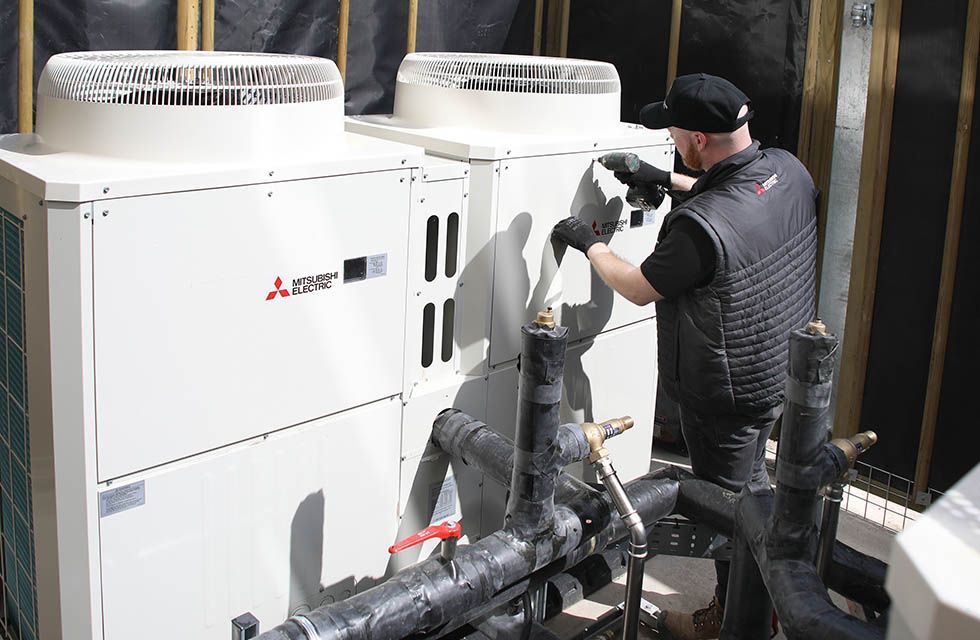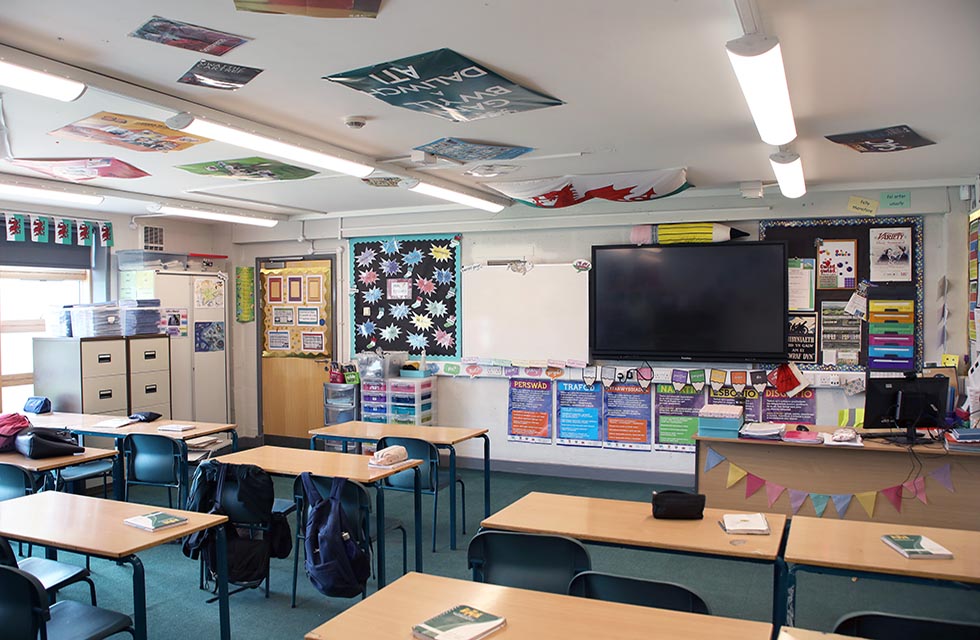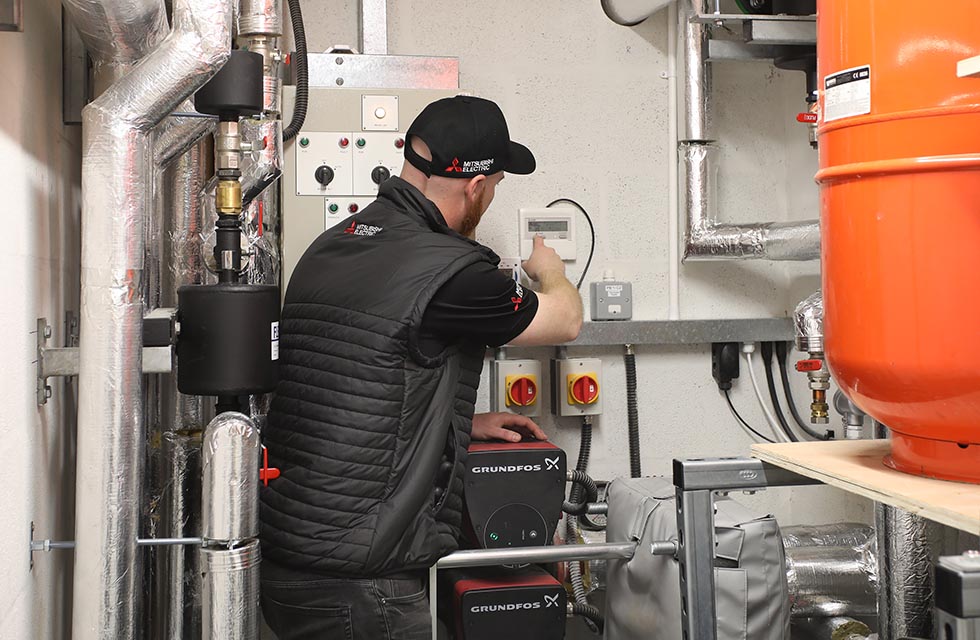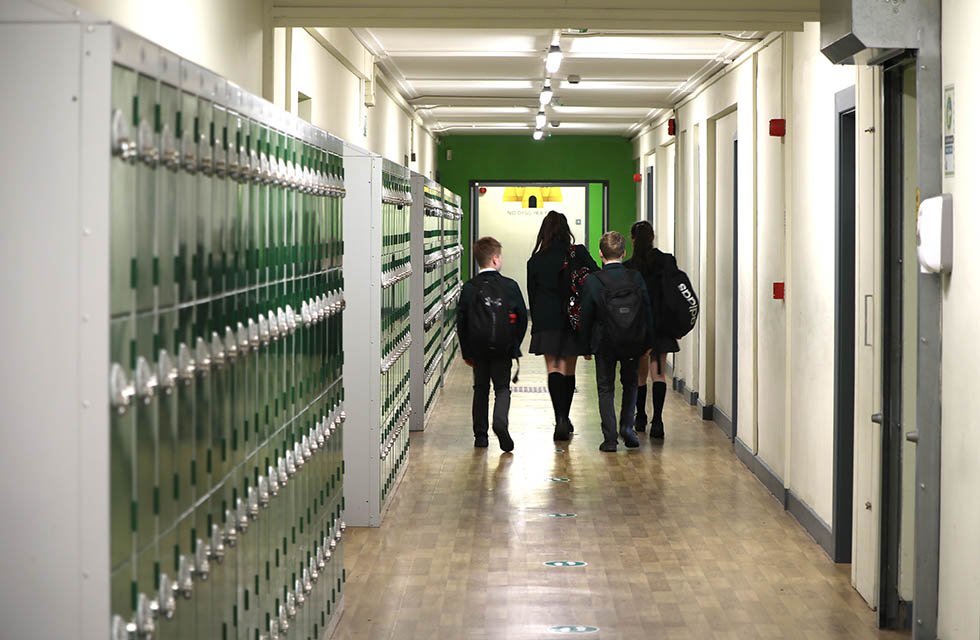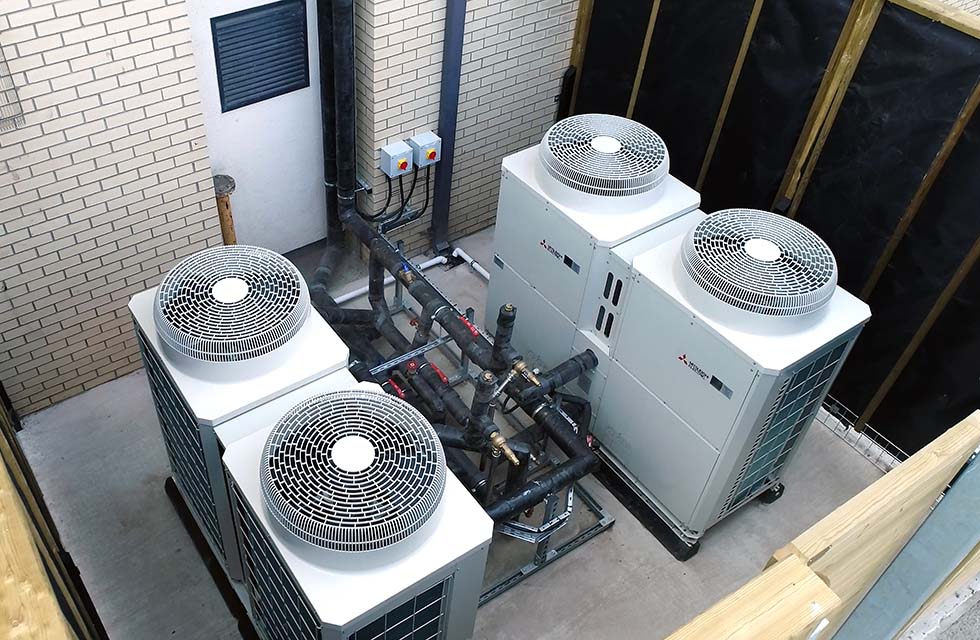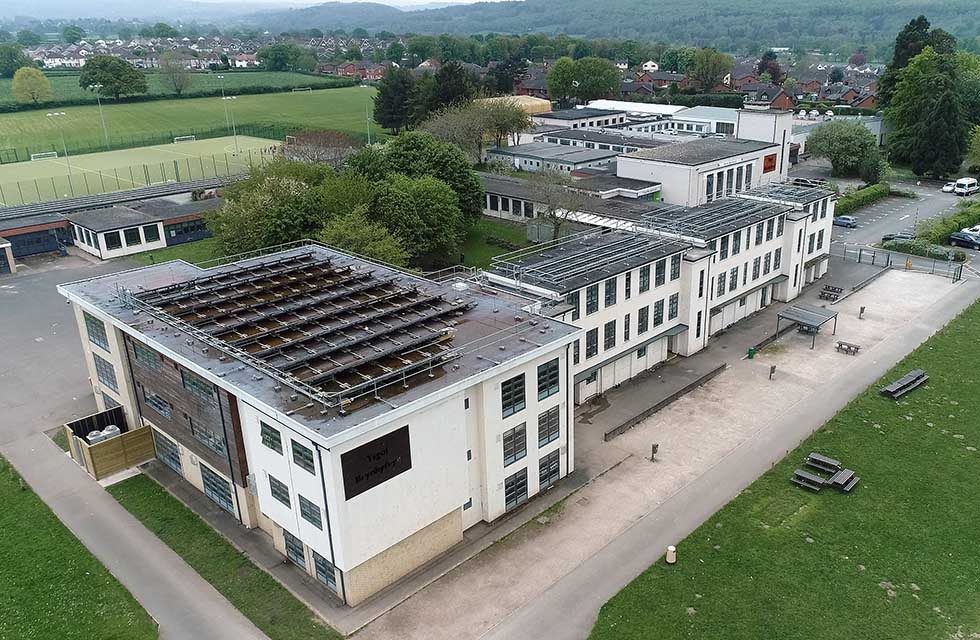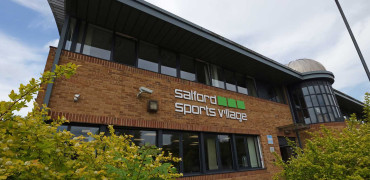Funding from the Welsh Government has helped a Ruthin secondary school decarbonise their heating by replacing gas boilers with renewable air source heat pumps.
Ysgol Brynhyfryd is a bilingual co-educational comprehensive school for over 1,000 pupils aged between 11 and 18 years of age in the beautiful valley of Clywd, in North Wales.
The school is maintained by the Denbighshire Education Authority and in 2019 Council Members decided to declare a climate and ecological emergency and to work to net zero by 2030.
“As part of this we are looking at all our buildings and in particular schools as this is an area where we know we can make a direct impact on carbon emissions,” explained Cllr Barry Mellor, Denbighshire County Council.
This will lead to savings in both running costs and carbon emissions
Saving £17-£19K a year
The solution was the installation of 70kW of solar photovoltaic panels on the school roof, along with replacing three gas boilers with two commercial air source heat pumps.
“Between the schemes, the air source heat pumps and the solar panels system that we installed here, it is estimated that the school will save an average of £17 to £19 thousand per annum, along with 28 tonnes of carbon,” commented Ben Musgrave, Director of JM Renewable Solutions, who installed the systems.
JM Renewables replaced the existing gas boilers in the school with two 40kw CAHV air source heat pumps from Mitsubishi Electric. The school building has underfloor floor heating throughout. Coupled with this JM Renewables installed a further 75kW of solar panels on the building’s roof, to help with the running costs.
70°C water temperatures
Although the CAHV units are very quiet at 64 dBA, JM Renewables built an acoustic enclosure as the heat pumps are outside classroom windows. The project was completed over the Easter half term and the plant room was also refitted with a new 800 litre buffer tank and associated pumps. The entire system was fully operational on the day the children came back after the break.
The CAHV heat pumps achieve 70°C water temperatures down to -20°C ambient temperature to deliver continuous heating. Multiple unit cascade control offers capacity from 7.8kW to 640kW to make the system suitable for a wide range of applications.
The heat pumps meet the design temperature of the school, so it was almost a direct swop from the boilers,” explained Elliot Sullivan, Head of Mechanical Division at JM Renewables. “The efficiency of the heat pumps installed should be around 300 to 400 per cent, so for every one kilowatt of electricity consumed, it will deliver 3 to 4 kilowatts of heat to the building”.
A more efficient school
The entire project to upgrade the heating and install the additional solar panels took almost four months and the JM Renewables installers were full of praise for the way the school caretakers helped them get the job done.
It’s been a lot of hard work to get the air source heat pumps, the solar panels and some additional LED lighting, commented Tefor Jones, Head Teacher at Ysgol Brynhyfryd.
“However, it’s been worth it as it’s all part of a long line of initiatives and plans that have happened in the school to make the school more efficient as we move forward,
Savings in costs and emissions
Denbighshire County Council has now completed upgrades in around 30 schools out of around 70 schools in the County. For Ysgol Brynhyfryd the Council was able to secure Welsh Government Low Carbon Heat Grant funding for 90% of the project with the County Council finding the other 10%.
The Low Carbon Heat Capital Grant funding is intended for capital works associated with retrofitting low carbon heat solutions in non-domestic, local authority-owned buildings.
Councillor Barry Mellor was full of praise for the school for allowing the work to be done adding: “This will lead to savings in both running costs and carbon emissions for both of us.”
Carole Titmuss is Editor of Refurb Projects


